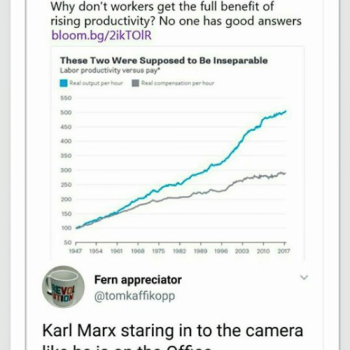
Bernie Sanders captivated the hearts and minds of tens of millions of Americans when he ran for president in 2015 and 2016 – many of them young and relatively new to the political arena.
In his doomed candidacy for the Democratic Party’s presidential nomination, Sanders spoke with unbridled (and unpolished) passion about the economic injustice that so marks American society. As the campaign wore on, he expanded his message to include racial and environmental justice, as well as the most anti-imperialist platform a major presidential candidate has put forth in recent memory (although admittedly that isn’t saying much).
It was Sanders’s honesty and integrity on these issues that allowed him to bypass what many pundits assured the American people, time and time again in the mainstream media, in debates, and in thinkpieces for liberal sites such as the Huffington Post, was his greatest political weakness: the word “socialism.”
Sanders had identified as a democratic socialist at least since his tenure as mayor of Burlington, Vermont, where he had taken a hard line against business interests that sought to undermine local labor.
Interestingly, Sanders seemed to (whether consciously or not) distance himself from the label during his presidential campaign, for all the good it did him. When pressed on the subject by Stephen Colbert (who hilariously called Sanders a “liberal” and a “socialist” in the exact same sentence), Sanders fell back on the social democratic record of Scandinavian nations such as Denmark and Norway, touting those nations’ better education records and higher standards of living.
Redefining “socialism” as social democracy may have played well for the liberal-progressive audience Sanders was courting on Colbert, but with this tactic (which Sanders would use many, many more times throughout the campaign) Sanders drew the ire of the Left, of true socialists, Marxists, communists, anarchists, et al.
Many of these people seemed personally offended that a SocDem like Sanders would take up the mantle of socialism, which calls for a democratic and worker-controlled society, emphatically not the still-bourgeois-but-with-more-welfare state Sanders seemed to be advocating.
Sanders’s shaky record on American imperialism, such as his lukewarm support for (or, more accurately, his failure to ardently oppose) imperialist Israel, was a frequent target of criticism from the Left. Never mind that Sanders’s position was by far the leftmost of any candidate in either major party; many Leftists would accept nothing less than total ideological purity.
Sanders was also accused of being a “sheepdog” for the Democrats – an establishment shill who runs a destined-to-lose campaign to the left of the party’s preferred candidate, then serves to “shepherd” their voters back to the center during the general election. When Sanders was ultimately defeated and endorsed rival Hillary Clinton, most of Sanders’s critics felt (somewhat-justifiably) vindicated.
Today, many months after the end of the Democratic Party and after inaugurating a new, reactionary president, many on the Left are just so over Bernie Sanders. To some, his campaign has shown just how fruitless reformism is destined to be, and how ultimately useless electoral politics (at least on a national level) are for those yearning for The Revolution. No more charismatic leaders, no more ideologues, no more saviors.
But what many on the hardline left have forgotten, and what everyone on the Left should be celebrating, is the energy and life the Sanders campaign has brought to our movement.
Of course Sanders is not a “real” socialist – whatever that is. He is still a liberal, albeit as far to the left as a liberal can be. His brand of social reform ultimately serves only to prolong the life of capitalism by putting a friendly, more caring face on it. (The fact that those policies could potentially save millions of lives is rarely discussed among these circles.)
That does not mean that Sanders is not well-intentioned, or that he has not been a boon to all stripes of American socialists.
A YouGov survey in early 2016 showed – as hysterical reactionary publications like The Federalist and Breitbart were quick to explain away as a result of millennials not knowing history – that millennials have an overall higher opinion of socialism than capitalism. Another study that year, from Harvard, showed a majority of millennials rejecting capitalism.
This is striking because it has never happened before in American history, with any generation. While it is quite probable that many of those surveyed were basing their conception of “socialism” on Sanders’s SocDem reduction of it, the point is that the word is no longer scary. It is no longer an automatic disqualifier. And thousands upon thousands of eager young people will be taking to the internet and to their local library to get the skinny on what the word their parents detest with such fervor actually means.
Since the fall of the Soviet Union, American conservatives and liberals alike have proclaimed that the irrationality of socialism and communism have been proven beyond the shadow of a doubt. Socialism in the United States has been so identified with Marxism-Leninism that the idea that true communism (as defined by Marx) has never actually existed would puzzle most Americans, factual as it may be.
But when young people do independent research, when they are put on a path of self-discovery to understand a term and its historical background of their own vocation, they are immune to the misinformation decades of American propaganda has instilled. This is what the Bernie Sanders campaign has inspired: thousands upon thousands of young people who want to know what socialism really is.
Some will no doubt be scared away by obscure terms like “means of production” and “dictatorship of the proletariat.” Others will learn for the first time (thanks, garbage American public education!) the link between socialism and communism and be turned off.
But many others will realize that the vision of socialism really isn’t so bad. Many will begin developing a true class consciousness. Many will discover Marx and his political descendents in the course of their research, and become radicalized into the Left proper.
I know because that is exactly how it happened with me. I used to scoff at communism and think of socialism as simply “when the government controls industry.” Sanders inspired me (and thousands of others) to take another look, to think for ourselves, and to question whether or not capitalism can really be reformed. Along the way, I discovered that Christianity and socialism are much more compatible than I ever would have dreamed.
Sanders has the wrong idea about how to liberate the working class – capitalism cannot be reformed and must ultimately be done away with. But he is earnest in his wrongness, and through his talent for energizing his base, will inspire many more in the years to come to move further and further to the Left. A “gateway drug” to the Left, if you will.
He has done this by relentlessly questioning the status quo, even if his solutions do not go far enough. What he has proven to all of us is that sometimes you do not need all the right answers to make a difference; sometimes, merely asking the right questions is enough.















